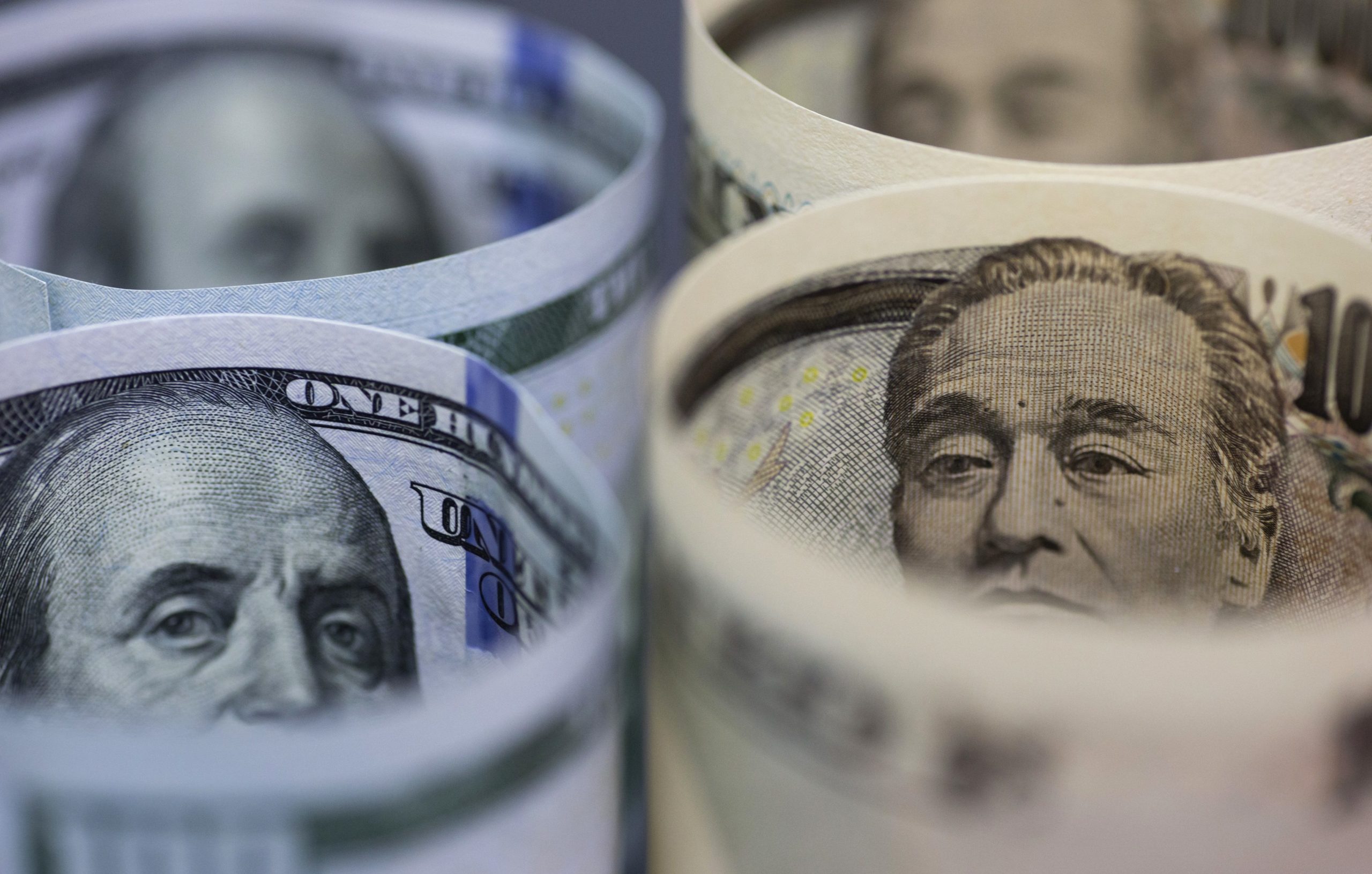- Two CBN Directors Arrested for Forex Manipulation
The Economic and Financial Crimes Commission has arrested two directors of the Central Bank of Nigeria for alleged forex manipulation and economic sabotage.
Impeccable sources at the EFCC told one of our correspondents on Wednesday that the directors were still in custody as of press time at 7.30pm.
It was learnt that the investigation into the CBN officials activities sent shockwaves round the apex bank.
The detective said the houses of the directors had been searched while incriminating evidence had been recovered.
A source at the EFCC, who wished to remain anonymous said, “We have arrested two directors of the CBN in connection with forex manipulation. We believe that it was the activities of these individuals that contributed to the dollar scarcity and the weakening of the naira.
“Ironically, immediately we started investigating these chaps a month ago, the CBN reeled out a new forex policy which sought to flood the market with excess dollar and strengthen the naira.
“Already, we have searched their houses and recovered some sensitive documents. We have reason to believe that they may not have acted alone. We expect to make more discoveries as investigations continue.”
When contacted, the Acting Director, Corporate Communications Department, CBN, Mr. Isaac Okoroafor, said no director of the apex bank had been arrested by the EFCC.
He said, “This is not true. No director of the bank (CBN) has been arrested by the EFCC. The current activities of the CBN in the forex market is a result of months of study, monitoring and planning to tackle the activities of black marketers.
“We are succeeding and Nigerians are happy with us. No amount of false rumours and concoctions to ridicule and sabotage the success we have achieved will make us lose our focus at this time.”
Meanwhile, the EFCC has dispatched letters to several aides and persons linked to Senate President Bukola Saraki for their alleged role in the N19bn illegally deducted from the N522bn Paris Club refund.
About N3.5bn out of the stolen N19bn was said to have been traced to Saraki and several persons close to him, an EFCC report had said.
A top source at the EFCC told one of our correspondents that letters had been dispatched to the indicted persons and some were billed to report at the EFCC office on Thursday (today).
A detective said, “I can confirm to you that letters have been dispatched to aides to the Senate President. Some will appear on Thursday (today) while others will appear on subsequent days depending on the outcome and pace of investigations.”
Some of the persons invited by the anti-graft agency included Saraki’s Deputy Chief of Staff and a former lawmaker, Gbenga Makanjuola; Obiora Amobi and Oladapo Joseph Idowu.
Others are Mr. Kolawole Shittu, and a former Managing Director of Saraki’s defunct bank, Societe Generale Bank of Nigeria, and current boss of Melrose General Services Limited, Mr. Robert Mbonu; and the Relationship Manager to the Senate President in Access Bank, Kathleen Erhimu.
Melrose General Services is one of the companies hired as consultants by the Nigeria Governors’ Forum.
The firm got N3.5bn as consultancy fees while other companies shared about N15.5bn.
When asked why Saraki was singled out for investigation, the source said, “No one is victimising the man. He is an easier target because he has no immunity unlike the governors most of whom still have immunity till 2019.
“The investigation is holistic and in due course everyone found culpable will face justice.”
Recall that the Federal Government had in December 2016 approved the sum of N522.74bn to be paid to the 36 states of the federation as part of the reimbursement for the over-deduction on the Paris Club loan from 1995 and 2002.
The EFCC had sometimes in January discovered that the Paris loan refunds were illegally routed through the account of the NGF by the CBN.
Upon receiving the funds, the NGF in an alleged connivance with Saraki, began remitting huge sums to private consultants who then laundered about N19bn.
The EFCC report sent to the Presidency states in part, “Suffice to apprise that all payments received by Melrose General Services Company from the NGF have hitherto been diverted directly via cash withdrawals and indirectly through transfers by Hon. Gbenga Peter Makanjuola, Kolawole Shittu and Oladapo Joseph Idowu who are principal aides of the Senate President.
“Furthermore, other payments from Melrose General Services Company have also been linked to companies that Dr. Bukola Saraki has interest in and carries out transactions with.
“This includes the sum of $183,000 which was transferred to Bhaska Devji Jewellers, Dubai, a company Dr. Bukola Saraki had repeatedly made payments to.
“Also, the sum of N200m was transferred to Wasp Networks Limited that subsequently transferred the sum of N170m to Xtract Energy Services Limited, a company that routinely made deposits into Dr. Saraki’s Access Bank US dollar Domiciliary account.
The reports concludes that a prima facie case of conspiracy to retain the proceeds of unlawful activities and money laundering contrary to Sections 15(3) and 18(9) of the Money Laundering Prohibition Act 2004 can be established against the aforementioned suspects.
The Special Adviser to the Senate President on Media and Publicity, Mr. Yusuph Olaniyonu, however, rubbished the report, adding that the acting Chairman of the EFCC, Mr. Ibrahim Magu, was on a revenge mission having been rejected by the Senate two weeks ago.


 Billionaire Watch2 weeks ago
Billionaire Watch2 weeks ago
 Startups4 weeks ago
Startups4 weeks ago
 News4 weeks ago
News4 weeks ago
 News4 weeks ago
News4 weeks ago
 Bitcoin4 weeks ago
Bitcoin4 weeks ago
 Naira4 weeks ago
Naira4 weeks ago
 Forex3 weeks ago
Forex3 weeks ago
 Treasury Bills4 weeks ago
Treasury Bills4 weeks ago
























